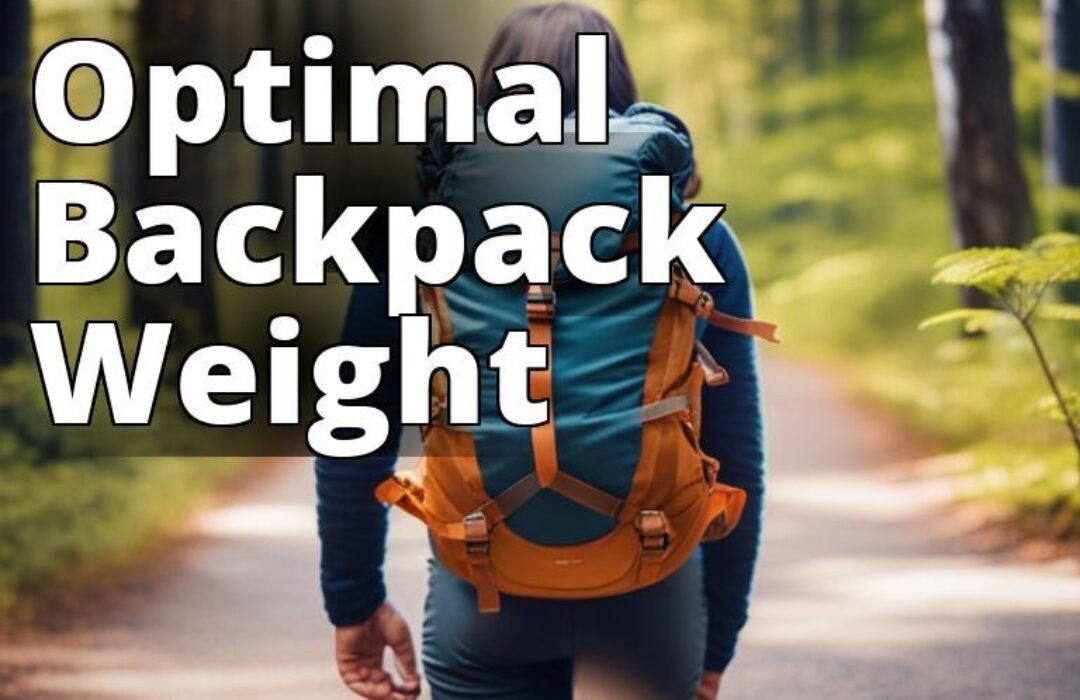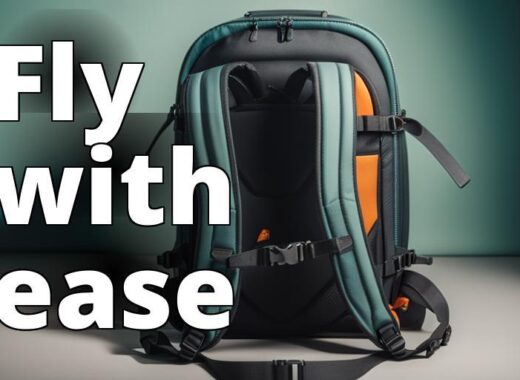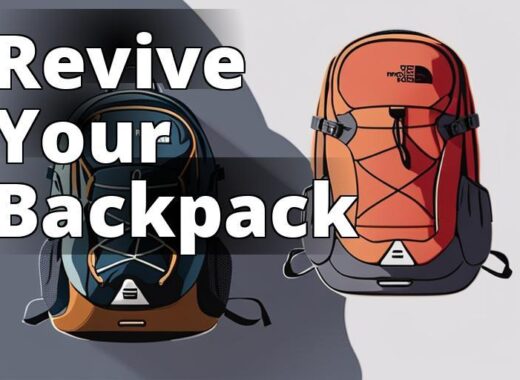What you will learn from this article:
- The importance of backpack weight for comfort and safety.
- Factors to consider when determining backpack weight.
- Recommended base weight limits for backpacks.
When it comes to backpacking adventures, the weight of your backpack is a crucial factor that is often overlooked. Many people underestimate its significance, assuming that it won’t make much of a difference. However, understanding how much your backpack should weigh is essential for both comfort and safety during your journey.

Relevance of backpack weight for comfort and safety
Carrying a heavy backpack can turn an enjoyable trip into a painful and exhausting experience. It can cause discomfort, back pain, and muscle strain. Additionally, an excessively heavy backpack can affect your balance and stability, increasing the risk of falls or accidents on uneven terrain.
Impact of carrying an excessively heavy backpack
Apart from immediate discomfort, carrying an excessively heavy backpack can have long-term consequences for your physical health. It can lead to chronic back pain, joint issues, and muscle imbalances. Furthermore, an overloaded backpack can hinder your ability to move freely and explore the surroundings, limiting the overall enjoyment of your adventure.
The importance of backpack weight for comfort and safety
Understanding the importance of backpack weight is essential to prioritize your comfort and safety during your backpacking journey. Let’s explore the reasons why backpack weight matters.
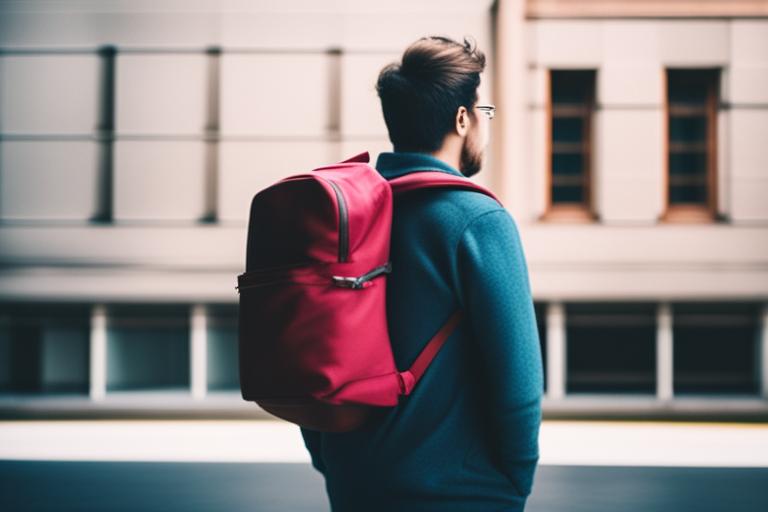
Potential health issues associated with a heavy backpack
Carrying a heavy backpack can strain your back, shoulders, and neck, leading to muscle fatigue and discomfort. Over time, this strain can result in chronic pain and even structural damage to your spine. The added weight can also affect your posture, leading to imbalances and alignment issues.
Benefits of a properly weighted backpack
On the other hand, a properly weighted backpack can significantly enhance your comfort and overall backpacking experience. By distributing the weight evenly, you can reduce strain on specific muscle groups and maintain a more natural posture. This allows you to move more freely and maintain better balance, reducing the risk of accidents or injuries.
Factors to consider when determining backpack weight
Determining the appropriate weight for your backpack requires considering various factors. By taking these factors into account, you can ensure that your backpack is manageable and suitable for your specific needs.
Assessing trip duration and type of activities
The duration of your trip and the type of activities you plan to engage in play a significant role in determining the weight of your backpack. For shorter trips or less physically demanding activities, you can carry a slightly heavier load. However, for longer expeditions or strenuous activities such as mountaineering, it is crucial to keep your backpack weight to a minimum.
Evaluating personal physical capabilities and fitness level
Your personal physical capabilities and fitness level should also be considered when determining backpack weight. If you have a strong and fit physique, you may be able to handle a slightly heavier load. However, it’s important to be realistic about your abilities and not exceed your limits. Overestimating your strength and endurance can lead to discomfort, fatigue, and potential injuries.
Recommended base weight limits for backpacks
To ensure a well-balanced and comfortable backpacking experience, it’s essential to understand the concept of base weight and its significance. Base weight refers to the weight of your backpack without considering consumables such as food, water, or fuel.
Concept of base weight and its significance
The base weight of your backpack forms the foundation of your overall load. It includes items such as your tent, sleeping bag, clothing, cooking equipment, and other essential gear. Keeping your base weight within reasonable limits is crucial for minimizing strain on your body and maximizing comfort.
General guidelines for base weight limits based on trip duration and activity type
While the ideal base weight limit may vary depending on personal preferences and specific circumstances, there are general guidelines to consider. For shorter trips or less physically demanding activities, aim for a base weight below 20% of your body weight. For longer trips or more demanding activities, it’s advisable to keep your base weight below 15% of your body weight.
Proper weight distribution within a backpack
Once you’ve determined the appropriate weight for your backpack, it’s equally important to ensure proper weight distribution. Uneven weight distribution can lead to discomfort, instability, and an increased risk of injuries. Here are some techniques to achieve balanced weight distribution within your backpack.
Importance of evenly distributing weight
Even weight distribution is crucial for maintaining stability and balance while carrying your backpack. By evenly distributing the weight, you prevent excessive strain on specific areas of your body, reducing the risk of muscle fatigue and discomfort.
Techniques for achieving balanced weight distribution
To achieve balanced weight distribution, place heavier items closer to your back and towards the center of the backpack. This helps maintain your center of gravity and prevents the backpack from pulling you backward. Additionally, use internal compartments and pockets to strategically distribute weight. Utilize external attachment points to balance the load.
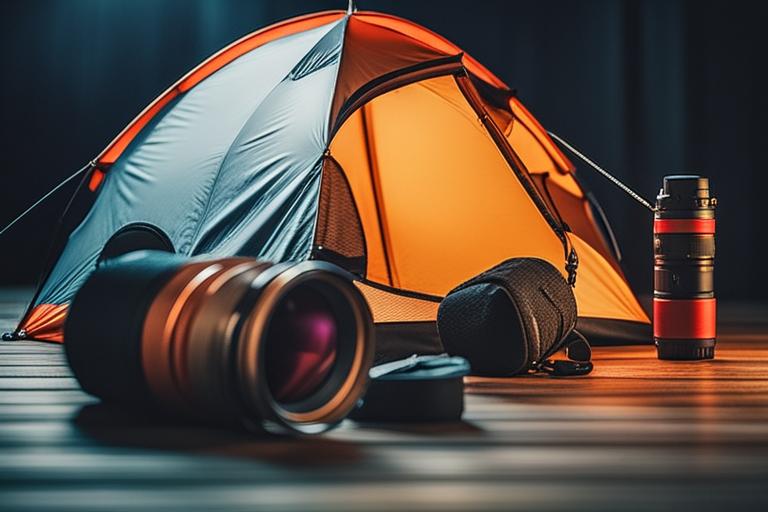
Selecting lightweight gear and equipment
One of the most effective ways to reduce the weight of your backpack is by selecting lightweight gear and equipment. Investing in lighter alternatives for essential items can significantly reduce the overall load without compromising functionality.
Tips for choosing lightweight alternatives for essential items
When selecting gear and equipment, prioritize lightweight options without compromising quality and durability. Opt for lightweight tents, sleeping bags, cooking stoves, and other essential items. Consider materials such as titanium or carbon fiber, known for their lightweight properties.
Benefits of investing in lightweight gear
Investing in lightweight gear reduces strain on your body and enhances your overall backpacking experience. Lighter gear allows for easier mobility, faster hiking pace, and less fatigue. It can make a noticeable difference, particularly during long-distance hikes or multi-day expeditions.
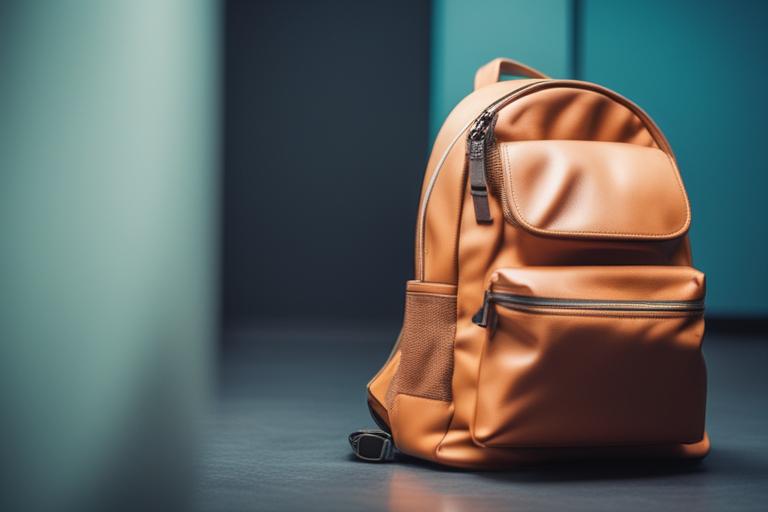
Minimizing unnecessary items to reduce backpack weight
One of the simplest yet often overlooked ways to reduce backpack weight is by minimizing unnecessary items. Critically evaluate each item’s necessity and consider whether it is worth the additional weight.
Critical evaluation of items to determine their necessity
Before packing, lay out all the items you plan to bring and evaluate each one individually. Ask yourself if each item is truly essential and serves a crucial purpose during your trip. If an item is not vital or can be replaced by a lighter alternative, consider leaving it behind.
Suggestions for reducing weight by eliminating non-essential items
Consider leaving behind items that have multiple uses or can be easily replaced along the way. Use digital alternatives for books and pack travel-sized toiletries. Minimizing unnecessary items not only reduces weight but also frees up space in your backpack.
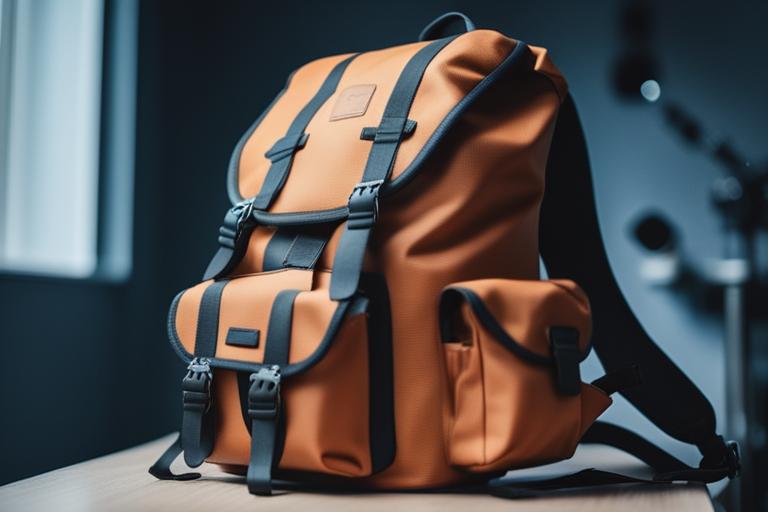
Efficient packing techniques to optimize backpack weight
Efficient packing techniques can maximize the use of space within your backpack and optimize weight distribution. By organizing your gear strategically, you can minimize wasted space and ensure a well-balanced load.
Techniques for organizing and maximizing space within the backpack
Roll clothes instead of folding them to save space and reduce wrinkles. Utilize packing cubes or compression sacks to condense clothing and soft items. Place smaller items inside larger ones to make use of every available space. Efficient packing reduces weight and makes it easier to find specific items.
Proper weight distribution within different compartments of the backpack
When packing, consider weight distribution within different compartments. Heavier items should be placed closer to your back and in the lower sections of the backpack. Lighter items can be placed towards the top or in external pockets. This ensures stability and balance throughout your journey.
Case Study: Sarah’s Backpack Weight Dilemma
Sarah, an avid hiker, was excitedly preparing for a week-long backpacking trip in the Rocky Mountains. As she gathered her gear, she realized that her backpack felt heavier than usual. Concerned about the impact of carrying an excessively heavy backpack, she decided to reassess her packing strategy.
Sarah knew that carrying a heavy backpack could lead to potential health issues such as back pain and fatigue. She also understood that a properly weighted backpack could greatly enhance her comfort and safety on the trail. Determined to find a solution, she began researching expert tips and tricks for managing backpack weight.
After evaluating her trip duration and the type of activities she would be engaging in, Sarah determined that her base weight should be around 20% of her body weight. She carefully selected lightweight alternatives for essential items such as a down sleeping bag and a compact stove, reducing her overall pack weight significantly.
Sarah also learned about the importance of weight distribution within a backpack. She experimented with different packing techniques, such as placing heavier items closer to her back and using the compartments wisely, to achieve a balanced weight distribution.
To further minimize unnecessary weight, Sarah critically evaluated each item in her backpack. She decided to leave behind non-essential items like extra clothing and unnecessary gadgets, reducing her pack weight even more.
Before embarking on her trip, Sarah decided to test and adjust her backpack weight for optimal comfort. She went on a few trial hikes with her fully packed backpack, making necessary adjustments along the way. This allowed her to find the ideal weight that provided both comfort and functionality.
Thanks to her research and dedication to managing her backpack weight, Sarah had a fantastic and comfortable backpacking trip. She realized that striking the right balance for backpack weight was crucial for enjoying the journey without unnecessary strain on her body.
Sarah encourages fellow backpackers to prioritize comfort and safety by following expert tips and tricks for managing backpack weight. By doing so, they can embark on their adventures with confidence, knowing that their backpacks are properly weighted and optimized for a comfortable experience.
Testing and adjusting backpack weight for optimal comfort
Determining the ideal backpack weight is a process of trial and adjustment. Test your backpack’s weight during shorter hikes to assess its comfort level. Make necessary adjustments based on your experience to achieve the optimal weight for your backpack.
Trial hikes or walks to assess comfort level
Before embarking on a longer backpacking trip, plan shorter hikes with your fully loaded backpack. Evaluate the comfort level and note any areas of discomfort or strain. Adjust your backpack’s contents, redistribute weight, or replace heavier gear with lighter alternatives based on your trial hikes.
Tips for making necessary adjustments
If you experience discomfort during trial hikes, reevaluate your backpack’s contents. Remove non-essential items, redistribute weight, or replace heavier gear with lighter alternatives. Adjustments based on trial hikes can enhance your overall comfort during your backpacking adventure.
Additional tips and considerations for backpack weight management
In addition to the main factors discussed, there are a few more tips and considerations for effective backpack weight management.
Advice for maintaining a balanced body weight while backpacking
Maintaining a balanced body weight is essential for overall backpacking comfort. Regular exercise, a balanced diet, and proper hydration are key to ensuring that your body is strong and capable of handling the backpack weight. Stay physically active and adopt healthy habits to maintain an optimal body weight.
Importance of physical conditioning and core strength
Physical conditioning and core strength play a crucial role in your ability to carry a backpack comfortably. Engage in exercises that target your back, shoulders, and core muscles to improve your overall strength and stability. Regular strength training and core workouts can make a significant difference in your backpacking performance.
Conclusion: Striking the right balance for backpack weight
Determining the weight of your backpack is an important decision. By understanding the importance of backpack weight, considering various factors, and implementing effective strategies, you can strike
Answers To Common Questions
How much weight should my backpack carry?
Your backpack should ideally weigh no more than 20% of your body weight.
What factors determine the ideal backpack weight?
Factors like your fitness level, duration of the trip, and terrain determine the ideal backpack weight.
How can I reduce the weight of my backpack?
You can reduce backpack weight by packing only essentials and investing in lightweight gear.
What if my backpack exceeds the recommended weight?
If your backpack exceeds the recommended weight, consider removing non-essential items or redistributing the load.
Who should I consult for backpack weight recommendations?
Consult with a professional backpacker or outdoor specialist for personalized backpack weight recommendations.
What if I can’t meet the recommended weight limit?
If you can’t meet the recommended weight limit, gradually work towards reducing the weight to avoid strain and injury.
William, a renowned outdoor enthusiast and backpacking expert, brings a wealth of knowledge and experience to the topic of backpack weight management. With over 20 years of backpacking experience in various terrains and climates, William has gained an in-depth understanding of the importance of backpack weight for both comfort and safety.
Having personally experienced the consequences of carrying an excessively heavy backpack, William is dedicated to educating others on the potential health issues associated with this common dilemma. Drawing from extensive research and studies on backpack weight, William provides evidence-based recommendations and guidelines for determining the ideal backpack weight based on trip duration and activity type.
Furthermore, William offers practical insights on achieving proper weight distribution within a backpack, including techniques for selecting lightweight gear and minimizing unnecessary items. With a focus on optimizing comfort and reducing strain on the body, William shares efficient packing techniques and provides valuable advice on testing and adjusting backpack weight for optimal performance.
Whether you’re a novice backpacker or a seasoned adventurer, William’s expertise will guide you in striking the right balance for your backpack weight, ensuring an enjoyable and safe outdoor experience.

